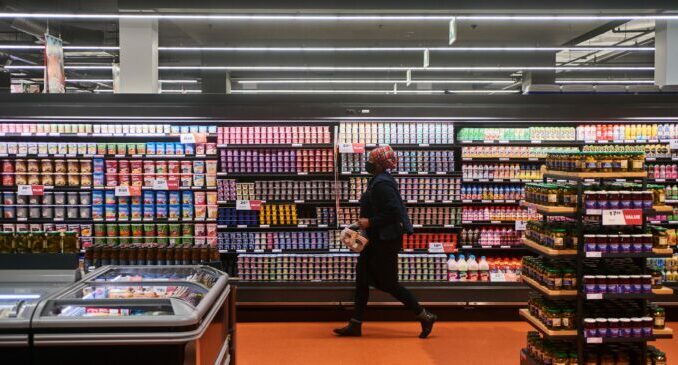
South Africa’s inflation hit a new record high of 7.8% year-on-year in July, its highest level in 13 years, driven mainly by rising food, transport and electricity prices, official figures showed on Wednesday.
“Year-on-year consumer price inflation hit a new 13-year high, rising to 7.8% in July from 7.4% in June,” the national statistics agency, StatsSA, said in a statement.
Inflation has reached its highest level in decades in many countries, fuelled by the war in Ukraine and the economic recovery following the easing of restrictions linked to the global Covid pandemic.
The continent’s leading industrial power had already seen an acceleration in consumer price inflation in June, to 7.4% year-on-year. Commodities such as food, beverages, electricity and medicines are the hardest hit: “annual inflation for non-durable goods is in double digits, at 14.4%”, StatsSA points out.
The price of bread rose by 13.7% and now costs 17.84 rand (1.05 euro) compared to 15.57 rand (0.92 euro) at the same time last year. Oil rose by 36.2%.
South Africans, nearly 34% of whom are unemployed, are also facing a 56.2% increase in fuel prices. On Wednesday, the country’s two largest trade unions called for demonstrations against the high cost of living.
In July, South Africa’s central bank tried to stabilize inflation by raising its key interest rate by 75 basis points to 5.5%, the biggest increase in a decade. The Bank of South Africa has revised its growth estimates downwards, expecting growth to slow to 1.3% in 2023, before rebounding slightly to 1.5% in 2024.
